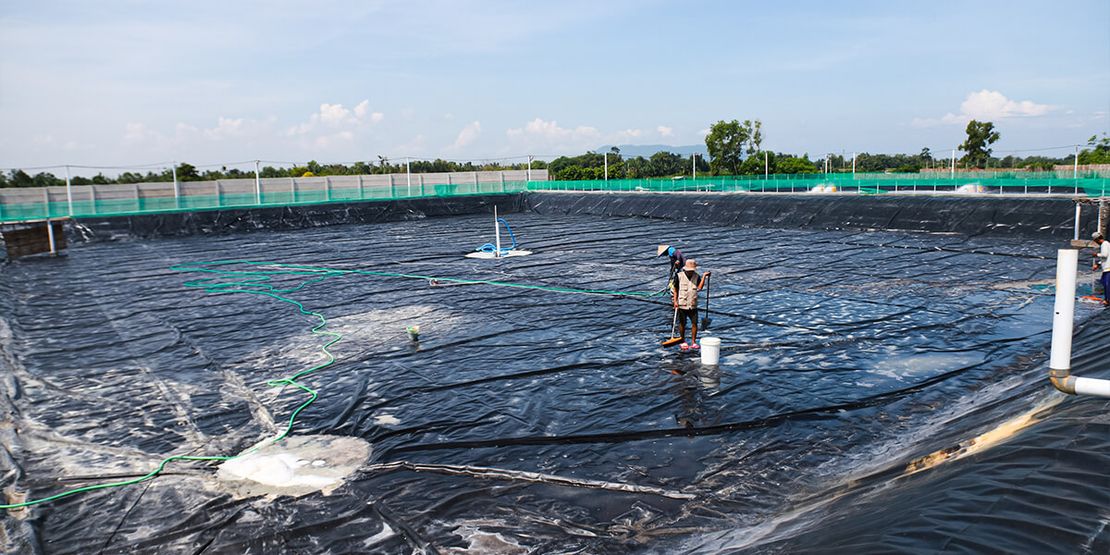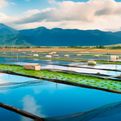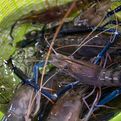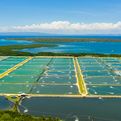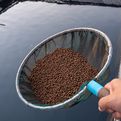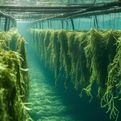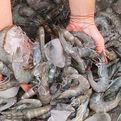Shrimp Farming Efficiency with PVC Liners: Balancing Pros and Cons
Shrimp farming has become a cornerstone of the seafood industry, driven by the rising global demand for seafood products. PVC liners have emerged as a popular choice for lining shrimp ponds, offering a range of benefits and drawbacks that shrimp farmers must carefully consider.
In this article, we'll delve into the pros and cons of using PVC liners in shrimp farming ponds to help farmers make informed decisions about their pond lining choices.
Pros of Using PVC Liners
Durability
PVC liners are renowned for their robustness, capable of withstanding punctures, tears, and abrasions, ensuring longevity and minimal maintenance requirements for shrimp ponds.
Watertightness
The watertight seal provided by PVC liners is essential for maintaining optimal water quality in shrimp ponds, reducing the risk of contamination and ensuring a conducive environment for shrimp growth.
Chemical Resistance
PVC liners exhibit resistance to various chemicals commonly used in water treatment, such as chlorine, safeguarding water quality and minimizing the risk of adverse reactions that could harm shrimp health.
Flexibility
The flexible nature of PVC liners allows for easy molding to fit the unique contours of shrimp ponds, reducing the likelihood of leaks and seepage and ensuring a snug, secure fit.
Cost-effectiveness
PVC liners offer a cost-effective solution for pond lining, providing an affordable option for shrimp farmers looking to optimize their operational expenses without compromising quality.
Cons of Using PVC Liners
Environmental Impact
PVC liners contribute to plastic pollution and environmental degradation, posing a long-term threat to ecosystems due to their non-biodegradable nature and prolonged decomposition period.
UV Degradation
Susceptibility to UV degradation can render PVC liners brittle and prone to cracking over time, compromising their integrity and necessitating premature replacement.
Leaching of Chemicals
PVC liners may leach harmful chemicals, such as phthalates and lead, into the water, posing risks to shrimp and other aquatic organisms and undermining water quality.
Limited Lifespan
PVC liners have a finite lifespan and require periodic replacement, entailing significant costs, labor, and downtime for shrimp farmers.
Repair Challenges
Repairing damaged PVC liners can be challenging and may necessitate costly and time-consuming replacement procedures, disrupting farm operations and inflating maintenance expenses.
PVC Liners for Shrimp Farmers
PVC liners offer shrimp farmers a combination of durability, watertightness, and affordability, making them an attractive choice for pond lining. However, environmental concerns, UV degradation, chemical leaching, limited lifespan, and repair difficulties present notable challenges that must be carefully weighed.
Shrimp farmers must conduct thorough assessments of their specific needs, operational constraints, and sustainability objectives when considering the use of PVC liners in their farming practices. By balancing the pros and cons, informed decisions can be made to optimize shrimp farming efficiency while minimizing environmental impact and ensuring long-term viability.
Riley Sinclair (Digital Aqua Bear)
Hi! I'm Riley Sinclair (Digital Aqua Bear), and I'm exploring the world of digital aquaculture farms. Join me as I delve into innovative methods and sustainable practices for cultivating aquatic life in digital environments. Let's uncover the potential of digital aquaculture farms to revolutionize food production and environmental sustainability.
More From Digital Aqua Farm
Sustainable Seafood Farming: Balancing Harvest and Conservation
Riley Sinclair (Digital Aqua Bear)
Shrimp Farming in Thailand: Navigating Challenges and Embracing Sustainability
Riley Sinclair (Digital Aqua Bear)
Building Your Own Lucrative Shrimp Farm: A Complete Guide
Riley Sinclair (Digital Aqua Bear)
Shrimp Feeding: Choosing the Right Feed for Healthy Aquaculture
Riley Sinclair (Digital Aqua Bear)
Algae Bloom in Shrimp Farming: Strategies for Detection, Prevention, and Solution
Riley Sinclair (Digital Aqua Bear)
Safeguarding Shrimp Farms: Effective Strategies and Disease Prevention
Riley Sinclair (Digital Aqua Bear)


